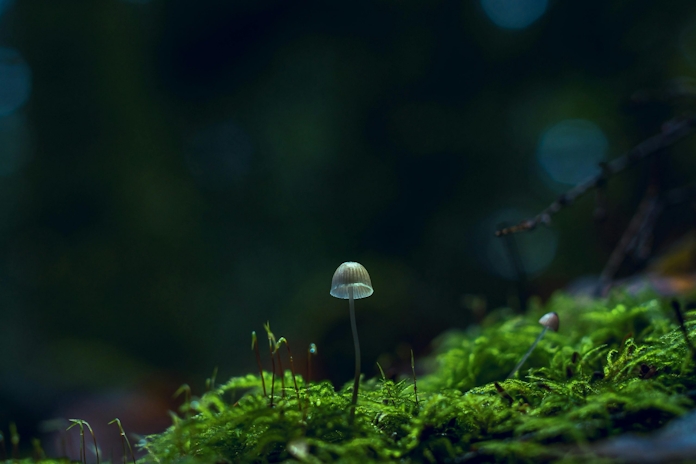
Chris G / Pexels
What Dose Of Shrooms Should You Take?
How to dose magic mushrooms: less guessing, more measuring.
Your psychedelic trip hinges on the amount of psilocybin packed into those magic mushrooms you’re about to munch on.
But knowing the psilocybin content in your shrooms can be tricky, especially if you’re buying from an unregulated, illegal market.
Here, we explore the typical amount of psilocybin you can expect to find in your magical fungi, and provide general guidelines to dosing.
Understanding Psilocybin
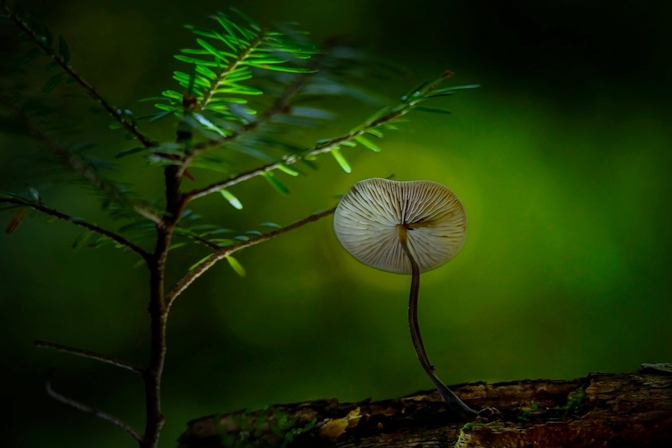
Puscau Daniel Florin / Pexels
Psilocybin is the key ingredient behind a magic mushroom trip.
When you munch on some magic mushrooms, your body transforms psilocybin into psilocin, the compound actually responsible for the shrooms’ mind-altering effects.
Psilocin binds to 5-HT2A serotonin receptors in the brain, tweaking your mood, reshaping your cognition, transforming your thoughts, and altering other areas of brain network activity. This translates to the psychedelic effect – an altered state of consciousness, visual or auditory hallucinations, and even perception changes with time and self.
But psilocybin-containing shrooms aren’t just used as a party favor. Research highlights its therapeutic potential in treating conditions like depression, anxiety, and substance misuse. For instance, a recent Nature Medicine studyspotlighted that psilocybin had an “opening up” effect in the brain, enhancing connectivity between regions that typically don’t communicate.
This helped participants feel more mentally flexible and dialed down persistent negative thinking – an effect that wasn’t achieved with traditional antidepressants.
The activation of serotonin receptors combined with enhanced brain connectivity can explain the creative bursts, deep emotional insights, and profound feelings of interconnectedness that users usually report after taking shrooms.
However, the right dose is necessary to experience shrooms in a way that may be beneficial for you while keeping yourself safe.
How To Dose Shrooms
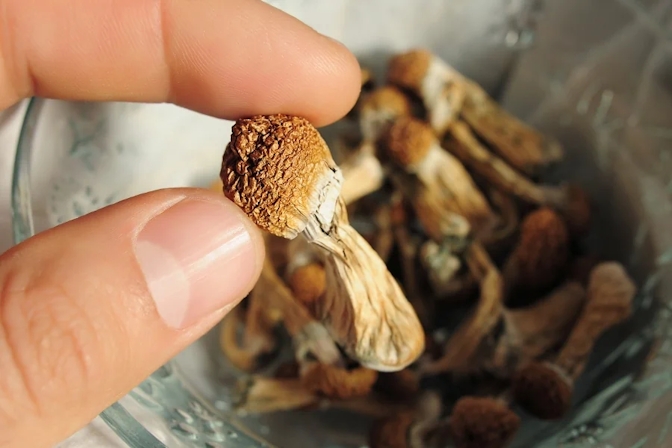
Dosing magic mushrooms, especially those you get from the illegal market that isn’t tested, can be challenging since you won’t know the real psilocybin content inside the shrooms.
The most common shroom variety, Psilocybe cubensis, typically contains around 1% of psilocybin per gram. This means for every gram of dried magic mushroom, you can expect about 10mg of psilocybin.
If you seek a complete psychedelic experience, which some refer to as a ‘mystical experience,’ where life-altering thoughts, feelings, and perceptions come to light, research shows that a dose of around 20-30mg of psilocybin per 70kg of body weight will do it. This translates to around 2-3 grams of dried shrooms for someone who weighs around 154 pounds.
Use a kitchen scale for accuracy to weigh out your dose and a regular scale to weigh yourself to get an idea of what dose is right for you. If you’re new to magic mushrooms, start with a microdose or minidose (check below) to see how your body and mind react.
Effects typically begin 20 to 40 minutes after ingestion, though this can vary based on factors like dosage, metabolism, and whether you’ve eaten. The trip usually peaks around 1.5 hours and can last from 4 to 8 hours.
Here’s a general guideline for dosing dried magic mushrooms:
Microdose (0.1g to 0.5g):
Effects: Subtle mood enhancement, increased creativity, reduced anxiety.
Ideal for: First-timers or those looking to boost their day-to-day functionality without the full psychedelic experience.
Minidose (0.5g to 1g):
Effects: Mild euphoria, slight visual enhancements, deeper emotional awareness.
Ideal for: Those seeking a bit more introspection or creative inspiration without overwhelming effects.
Moderate Dose (1g to 2g):
Effects: Enhanced colors and textures, emotional release, profound philosophical insights.
Ideal for: A balanced experience that’s deep enough for personal exploration but manageable in intensity.
High Dose (2g to 5g+):
Effects: Powerful visual and auditory hallucinations, a profound sense of oneness with the universe, deep introspection.
Ideal for: Experienced users looking for a transformative experience or significant psychological insights.
Methods Of Consumption
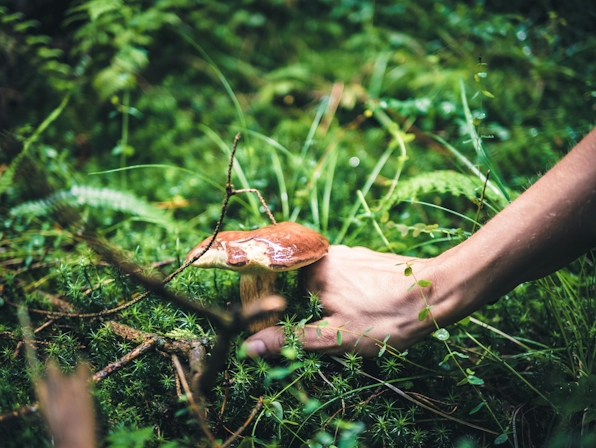
Fabian Wiktor / Pexels
Magic mushrooms aren’t exactly known for their delicious flavor. To get around their bitter, earthy taste, some prefer grinding them up and sprinkling them on food like hamburgers, salads, or pizzas.
Others go raw and munch on them directly, or steep them in hot water to make a tea – which some find eases the discomfort of eating them raw.
For those who like a more measured approach, grinding dried mushrooms into a powder and packing them into capsules allows for precise dosages and skips the taste entirely.
And for a tastier option, blending mushroom powder into treats like chocolate or cookies can almost completely mask their original flavor.
Plus, depending on your location, you might also find ready-made magic mushroom products. These can range from pre-made edibles and drinks to supplements, offering a convenient and sometimes more delicious alternative to preparing these fungi at home.
Risks Of Taking Shrooms
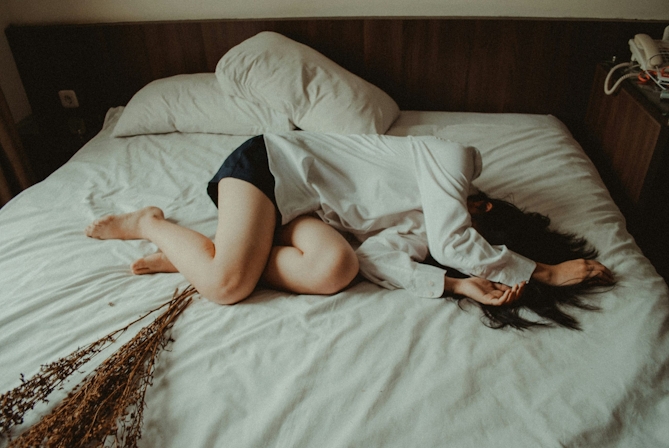
Yuris Alhumaydy / Unsplash
Psilocybin mushrooms have low levels of toxicity, meaning there’s a low chance of experiencing fatal events like a heart attack or breathing impairments. Chances of physical dependence or addiction are low.
Nausea and Stomach Discomfort
Many users report feeling nauseous or having an upset stomach, especially when consuming large amounts of shrooms. Besides their psychological effects, which might provoke discomfort, these psychedelic fungi contain released substances in the body, like beta-glucans, that might contribute to nausea or discomfort.
Some users use the ‘Lemon Tek’ method and soak their shrooms in lemon or lime juice before eating. The acidity eases digestion and also speeds up the conversion of psilocybin to psilocin, potentially intensifying effects.
Psychological Distress and Bad Hallucinations
Intense emotions and thoughts can surface, including anxiety, paranoia, and panic, particularly in uncomfortable settings or among those with mental health vulnerabilities.
During a ‘bad trip,’ users may find themselves overwhelmed by negative emotions and frightening hallucinations. This distressing experience can feel like a loss of control or a spiral into dark, intrusive thoughts. If you decide to take shrooms, do so in a comfortable, safe, and familiar environment without any potential triggers to arise.
Impaired Judgment and Coordination
Psilocybin significantly affects motor skills, increasing the risk of accidents if driving or operating machinery. Some users also find themselves engaging in risky behavior they wouldn’t otherwise do while sober.
Plan out your environment and activities to keep yourself occupied while taking shrooms.
Long-term Mental Health Risks
While many find psilocybin to be a gateway to profound insights and emotional healing, it also carries potential risks for long-term mental health.
Some users report experiencing persistent psychosis and flashbacks, a condition known as Hallucinogen Persisting Perception Disorder (HPPD), where users re-experience elements of a psychedelic trip long after the actual experience.
These effects can be disorienting and distressing, potentially impacting an individual’s ability to function in daily life.
Are Magic Mushrooms Legal In The United States?
The legal status of psilocybin is still restricted in many areas, posing a risk of legal consequences, including fines or imprisonment, if caught with these substances.
In the United States, psilocybin is classified as a Schedule I substance under the Controlled Substances Act, making its possession, sale, and use illegal at the federal level. There’s definitely a growing movement toward decriminalization and medical research, with cities like Denver, Santa Cruz, and Washington having decriminalized its possession and personal use.
And, states like Oregon and Colorado have taken steps to legalize psilocybin for medicinal purposes. Oregon’s Measure 109, passed in 2020, allows regulated medical use of psilocybin in supervised settings.
Herb Recommended Products:
READ MORE










